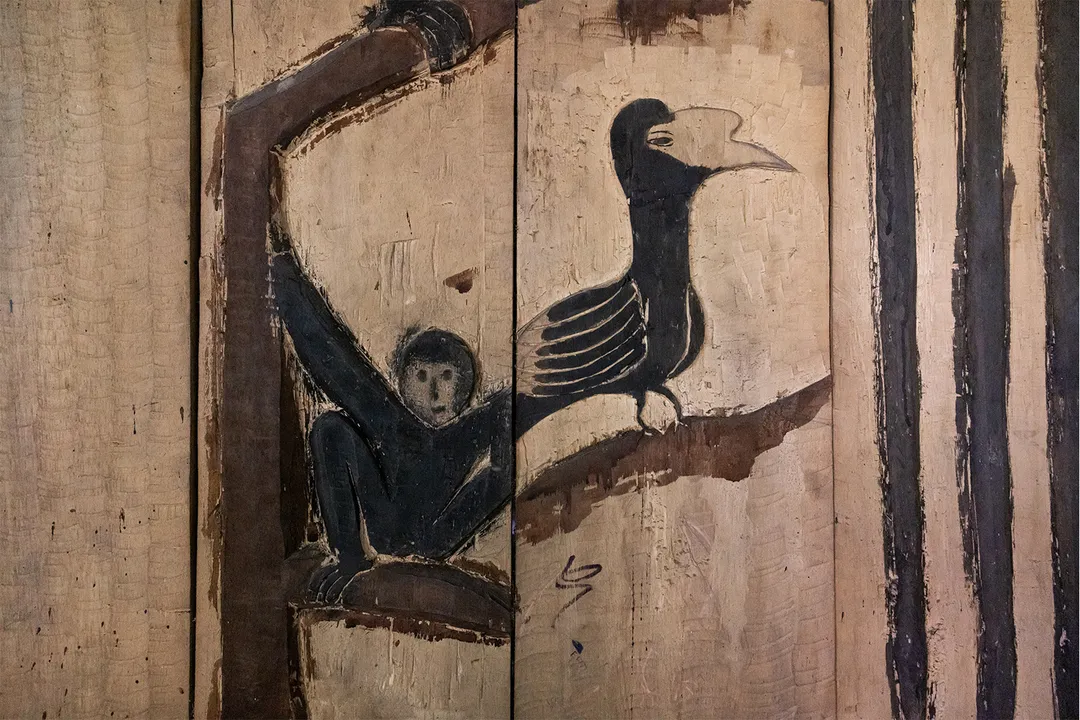
Indigenous Conservationists Stand Against The Threats To Mentawai’s Endangered Primates
In the heart of the Indonesia's Mentawai Islands, a dedicated group of Indigenous conservationists is leading a crucial effort to protect the region's endangered primates. This initiative, spurred by the alarming decline of these unique species due to hunting and habitat loss, serves as a vital reminder of the intersection between Indigenous rights and environmental conservation.
As night descends on the dense Siberut jungle, Damianus Tateburuk, affectionately called Dami, reflects on the evolution of hunting practices among the Mentawai people. Traditionally, hunting was regulated by deep-rooted animist beliefs, which respected certain species, particularly Kloss's gibbon, known locally as bilou. Today, however, these practices are eroding, with all six species of endemic primates facing severe threats. "Hunting bilou is forbidden," Dami asserts, highlighting its critical role as a spiritual messenger within Mentawai culture.

The stark fact remains: due to commercial logging, forest degradation, and the rise of opportunistic hunting, the populations of these primates have plummeted. Recent estimates suggest that simakobu numbers have decreased by 80-90% over the past decades, while the bilou has lost over 50% of its population in just 45 years. Mariani Ramli of the Gibbon Conservation Society emphasizes the urgency of conservation efforts: "There’s still so little research on the Kloss’s gibbon, even though it’s one of the rarest species most in need of urgent protection," he states.

The grassroots organization, Malinggai Uma Tradisional Mentawai, founded by Dami and his peers, strives to rekindle traditional customs alongside conservation needs. They engage local communities in monitoring wildlife, thus if the community understands primates as guardians of the forest, perhaps cultural beliefs can steer them towards conservation rather than exploitation. "If we don’t have primates, we don’t have the forest, and if there’s no forest, there’s no Mentawai," highlights Ismael Saumanuk, illustrating the interconnectedness of ecology and culture.

Nonetheless, the road to revitalizing these beliefs isn't without conflict. Many families, grappling with poverty, see hunting as a means of survival. During meetings in Bekkeilu village, some locals challenge Dami's conservation message, questioning why they should prioritize primates over their immediate economic needs. However, Dami believes that the key lies in building economic support through conservation initiatives.
As he hopes to establish a protected area and rehabilitate primate populations, Dami emphasizes the importance of translating cultural heritage into practical conservation strategies. His vision aims not just to protect primates but to preserve the essence of Mentawai identity. As Dami holds his daughter, he expresses a heartfelt desire: "All I want is for my children to grow up seeing and hearing our primates." Will the collaborative efforts of the Indigenous peoples and conservationists be enough to secure a future for Mentawai's endangered wildlife, or will their voices be lost in the throes of modernity?
